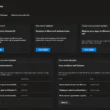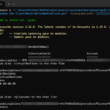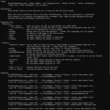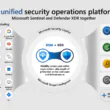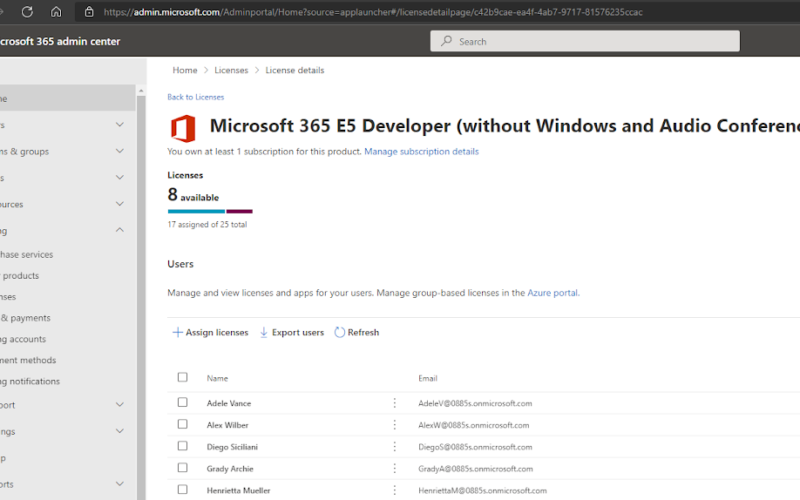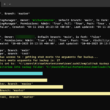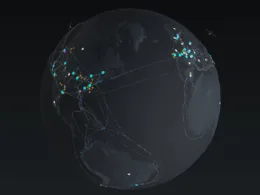Last Updated on March 14, 2024 by Michael Morten Sonne
Intoduction
The Microsoft 365 Developer Program is an invaluable resource for developers seeking to innovate on the Microsoft 365 platform. Recently, the program has undergone updates as part of the Microsoft Secure Future initiative, aimed at enhancing service quality and security measures.
This is changeing for this blog too: Set up a free Microsoft Intune lab tenant with Microsoft 365 developer subscription – Blog – Sonne´s Cloud (sonnes.cloud)
What is changeing
One significant update is the restriction of access to the Microsoft 365 developer subscription.
Now, only developers or organizations with active subscriptions to Visual Studio Enterprise or specific Microsoft AI Cloud Partner Program participants qualify for access. However, those who don’t meet the criteria can still purchase a single-license Microsoft 365 plan for development purposes.
Furthermore, the program now includes updated service plans, addressing previously missing components. Geographic limitations have been enforced for technical and security reasons, with support only available in select countries/regions. Additionally, there will be more frequent renewal checks to ensure compliance with terms and conditions.
As part of the transition, the original Office 365 E3 developer offer is being phased out, with users required to migrate to a new paid plan by April 1, 2024. Moreover, developers can anticipate early access to new features and services in preview mode within the Microsoft 365 Developer E5 subscription, facilitating testing and feedback provision to minimize disruptions.
These updates align with Microsoft’s commitment to providing a secure and innovative development environment. For more details on the Secure Future Initiative, developers can refer to Microsoft’s official announcements. With these enhancements, developers can stay ahead of the curve and leverage the full potential of the Microsoft 365 ecosystem.
What is the impact
The recent alterations to the Microsoft 365 Developer Program have sparked concern and disappointment among developers and IT professionals who rely on dev tenants for testing and learning purposes (myself included) 👎
Previously, the program served as an invaluable resource for developers, offering them the chance to test and experiment with Microsoft 365 features in a sandbox environment. However, recent updates have restricted access to the program, limiting it to developers with specific subscriptions or partners.
This decision has been met with criticism from the community, with many expressing frustration over the loss of access to dev tenants. Developers and IT Pros depend on these environments to refine their skills, test new features, and devise innovative solutions. Without them, many fear their ability to learn and advance within the Microsoft ecosystem will be severely hindered. Moreover, concerns have been raised about the potential impact on educational initiatives and the broader developer community. Access to dev tenants has played a pivotal role in facilitating learning and collaboration, particularly for students and aspiring developers.
While the decision may have been prompted by security concerns and misuse of dev tenants by bad actors (we know this happens), the community hopes that Microsoft will reconsider and find a solution that balances security with the needs of developers and learners. In the meantime, developers are left uncertain about the future of their learning and development journeys within the Microsoft 365 platform for now until we know more 🤞
It’s unfortunate to note that dev tenants, intended for legitimate testing and development purposes, have been misused by bad actors for nefarious activities such as spamming, phishing, and other malicious actions (I have seen this also by myself at work and so in the years)
This misuse not only undermines the integrity of the platform but also poses significant risks to users and organizations. The exploitation of dev tenants for spamming and phishing activities has been particularly alarming, as it can lead to the dissemination of fraudulent emails and the compromise of sensitive information.
Additionally, bad actors may leverage dev tenants to perform other malicious activities, such as distributing malware or conducting unauthorized access attempts. This misuse not only tarnishes the reputation of the Microsoft ecosystem but also highlights the importance of implementing robust security measures to safeguard against such threats. It underscores the need for increased vigilance and proactive measures to detect and prevent misuse of dev tenants, ensuring that they remain secure environments for legitimate testing and development purposes.
My perspective
Given the recent changes to the Microsoft 365 Developer Program, many users, including myself, are deeply concerned about the implications for our ability to conduct testing and experimentation within the Microsoft ecosystem.
For many of us, dev tenants have been indispensable tools for conducting various tests, whether it’s exploring new features, simulating real-world scenarios, or troubleshooting issues. Personally, I’ve relied on dev tenants extensively to test different configurations, experiment with integrations, and deepen my understanding of Microsoft technologies.
The ability to conduct hands-on testing not only enhances our technical skills but also enables us to provide better solutions and support to our organizations and clients. It’s through these testing environments that we gain valuable insights, identify potential pitfalls, and develop innovative solutions.
While I understand the need for security measures and the importance of preventing misuse of dev tenants, it’s crucial for Microsoft to find a balance that doesn’t impede legitimate testing and experimentation. Many of us use these environments responsibly to enhance our skills and contribute positively to the Microsoft community.
Looking ahead, I hope to see Microsoft reconsider its approach and find ways to preserve access to dev tenants for those of us who rely on them for legitimate testing purposes. Maintaining an environment that fosters learning, experimentation, and innovation is essential not only for individual growth but also for the overall advancement of the Microsoft ecosystem.
My Microsoft MVP Award helps me
I’m thrilled to share that I’ve been honored with the Microsoft MVP Award!
It’s an incredible privilege to be recognized by Microsoft for my contributions to the community. This award not only acknowledges my dedication but also opens doors to a wealth of benefits and subscriptions.
With access to a wide range of software and resources, I’m able to delve deeper into testing and developing innovative solutions. This opportunity not only enriches my own skill set but also allows me to contribute to the community. I’m truly grateful for this recognition and excited to continue my journey of learning and sharing with the Microsoft community.
Key benefits to MVPs include early access to Microsoft products and direct communication channels with our product teams.
MVPs have a very close relationship with the local Microsoft teams in their area, who are there to support and empower MVPs to address needs and opportunities in the local ecosystem.
Other benefits include an executive recognition letter, a Visual Studio technical subscription, and a Microsoft 365 subscription.
Read more here: Honored to receive the Microsoft MVP Award in Security – Febuary 2024! – Blog – Sonne´s Cloud (sonnes.cloud)
Read more about the benefits here: MVP Communities (microsoft.com)
Conclusion
The recent adjustments to the Microsoft 365 Developer Program have stirred considerable concern and disappointment among both developers and IT professionals alike. The decision to restrict access to dev tenants has raised significant questions about the future of hands-on learning and skill development within the Microsoft ecosystem.
For IT professionals, dev tenants have served as invaluable resources for testing, experimenting, and understanding the intricacies of Microsoft technologies. Many credit their expertise and proficiency in managing Microsoft solutions to the opportunities provided by these environments.
While the decision may have stemmed from legitimate security concerns and instances of misuse, there is a collective hope among IT professionals that Microsoft will reconsider and find a solution that strikes a balance between security and the needs of the community. Maintaining open dev tenants is crucial not only for fostering individual skill development but also for driving innovation and advancement within the broader IT landscape.
As the developer and IT professional communities await further updates, there is a shared aspiration that Microsoft will uphold its commitment to providing accessible learning environments. Ultimately, the success of the developer program and the continued growth of the IT industry depend on Microsoft’s willingness to prioritize the needs of its users and maintain an environment conducive to learning, experimentation, and collaboration
Thank you for taking the time to visit my blog. Kindly share it with others if you find it helpful for them! 😉🔐👍
Stay tuned for the new post about something cool! 🥳
